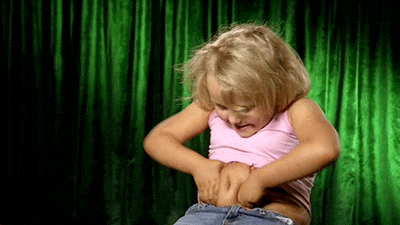 |
Source of GIF: GetYarn |
According to Aviva Must, Chair of Public Health and Community Medicine at Tufts University School of Medicine, children with developmental disorders face the unique challenge that adolescents with autism are more likely to be obese and have difficulty losing weight. Studies have found that children with autism have an obesity rate of 23%, compared to 14% for normal children. Also, boys with autism have higher rates of obesity than girls. Interestingly, the obesity rate for normal children in adolescence (10-17 years) has decreased by 50%, but remains high for children with autism.
 |
| Source of GIF: Gfycat |
The reason for their childhood obesity may be that young autistic people tend to be more rigid in their behaviour. As a result, there are times when they use food to relieve certain behaviours and stress, which may be the cause of their obesity. Furthermore, lack of exercise and malnutrition are also important causes of obesity in children with autism. In addition, the side effects of certain behavioural medications may also contribute to weight gain, such as antipsychotics.
 |
Source of GIF: Gfycat |
Helping children with autism to develop healthy eating habits and activity habits is crucial to preventing obesity in adulthood. However, this does present some challenges for two reasons. Firstly, for people with autism, they have routines that are fixed to be performed and it can be more difficult to break their unhealthy diet or activities compared to the average child. Secondly, people with autism often have sensory issues and oral chewing problems, both of which limit food choices. Over the years, such eating habits usually lead to weight gain in children.
 |
| Source of GIF: Tenor |
We all experience a slower metabolism as we get older, which means that young people with autism may burn fewer calories. All of this contributes to the risk of weight gain in the transition to adulthood for people with autism.
No comments:
Post a Comment